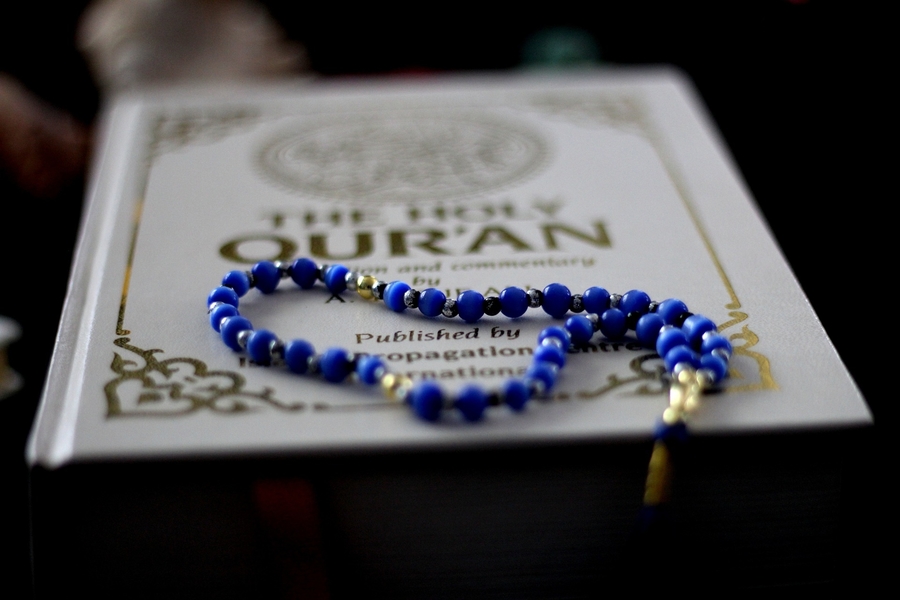Surah Shams, also known as Ash-Shams, is the 91st chapter of the Holy Quran following on from Surah Al Balad. It is translated into English as ‘the Sun’ and appears in the 30th juz. It has 15 verses in it that were revealed to the Prophet (SAW) in Makkah.

The main theme is about the person who purifies himself and how he will be successful, while the person who corrupts himself will fail. To perfect your relationship with Allah and purifying your soul as much as you can will save you from destruction. In addition to this, Allah has shown what is wrong and what is right.
Like some other surahs, Allah takes an oath at the start of the chapter by something He created. In this surah, there are as many 11 oaths that are taken, including by the moon and the earth. Taking an oath by something as great as the Sun which provides us with so much and plays such an important role in our daily lives, directs us to reflect upon the greatness of the One that created the Sun.
Surah | |
| Name | Ash-Shams |
| Meaning | The Sun |
| Number of Verses | 15 |
| Place of Revelation | Makkah |
| Chapter Number | 91 |
There is a connection between these heavenly bodies and our own selves. How there is order in the cosmos despite all the things vying for dominance. Similarly, within humans there is constant struggle between right and wrong, and if you can control your desires to please the Lord, everything will work in harmony and you will find a successful destination in Paradise.
The surah talks about how there is an inherent make up in a human to do deeds that are pleasing to Allah, and to know right from wrong. Living a good and pure life is a natural inclination and when evil deeds are carried out, a person is going against his nature and so deserves to be punished.
In this chapter, Allah talks about the tribe of Thamud and the Prophet that was sent to them – Salih (AS). How Allah sent to the tribe a camel as a sign for them but rather than honoring her, they tortured and killed it. Their Prophet Saleh (AS) warned them but they rejected his words. The leaders as well as the general public cooperated in its killing, so they were destroyed.
Surah Shams in Arabic Text

Transliteration
- Wash shamsi wa duhaa haa
- Wal qamari izaa talaa haa
- Wannahaari izaa jallaa haa
- Wallaili izaa yaghshaa haa
- Wassamaaa’i wa maa banaahaa
- Wal ardi wa maa tahaahaa
- Wa nafsinw wa maa sawwaahaa
- Fa-alhamahaa fujoorahaa wa taqwaahaa
- Qad aflaha man zakkaahaa
- Wa qad khaaba man dassaahaa
- Kazzabat Samoodu bi taghwaahaaa
- Izim ba’asa ashqaahaa
- Faqaala lahum Rasoolul laahi naaqatal laahi wa suqiyaahaa
- Fakazzaboohu fa’aqaroohaa fadamdama ‘alaihim Rabbuhum bizambihim fasaw waahaa
- Wa laa yakhaafu’uqbaahaa
Surah Ash-Shams Translation
- By the Sun and his (glorious) splendour;
- By the Moon as she follows him;
- By the Day as it shows up (the Sun´s) glory;
- By the Night as it conceals it;
- By the Firmament and its (wonderful) structure;
- By the Earth and its (wide) expanse:
- By the Soul, and the proportion and order given to it;
- And its enlightenment as to its wrong and its right;-
- Truly he succeeds that purifies it,
- And he fails that corrupts it!
- The Thamud (people) rejected (their prophet) through their inordinate wrong-doing,
- Behold, the most wicked man among them was deputed (for impiety).
- But the Messenger of Allah said to them: “It is a She-camel of Allah! And (bar her not from) having her drink!”
- Then they rejected him (as a false prophet), and they hamstrung her. So their Lord, on account of their crime, obliterated their traces and made them equal (in destruction, high and low)!
- And for Him is no fear of its consequences.
Lessons from the surah
- Life and its blessings. Look at your life and reflect upon what is a gift from Allah to you in it. What blessings have you been given that others have not and are you using them correctly and misusing them?
- Success lies in constant endeavour to please our Lord.
- Speaking up against the oppressors. Do we stand up for the weak when they are being oppressed?
- Do what is better for society as a whole.
Surah Shams in hadith
It was narrated from Abdullah bin Buraidah, from his father (RA), that
The Messenger of Allah (SAW) used to recite ‘By the sun and its brightness’ and similar surahs in Isha’. (Sunan an-Nasa’i)
Ibn `Umar (RA) reported: When the Messenger of Allah (SAW) and his Companions reached Al-Hijr, the dwellings of the Thamud people, he admonished his Companions (saying), “Do not pass by these people who are being tormented, without weeping, lest the punishment should befall you as it had befallen them.” (Riyad as-Salihin)



